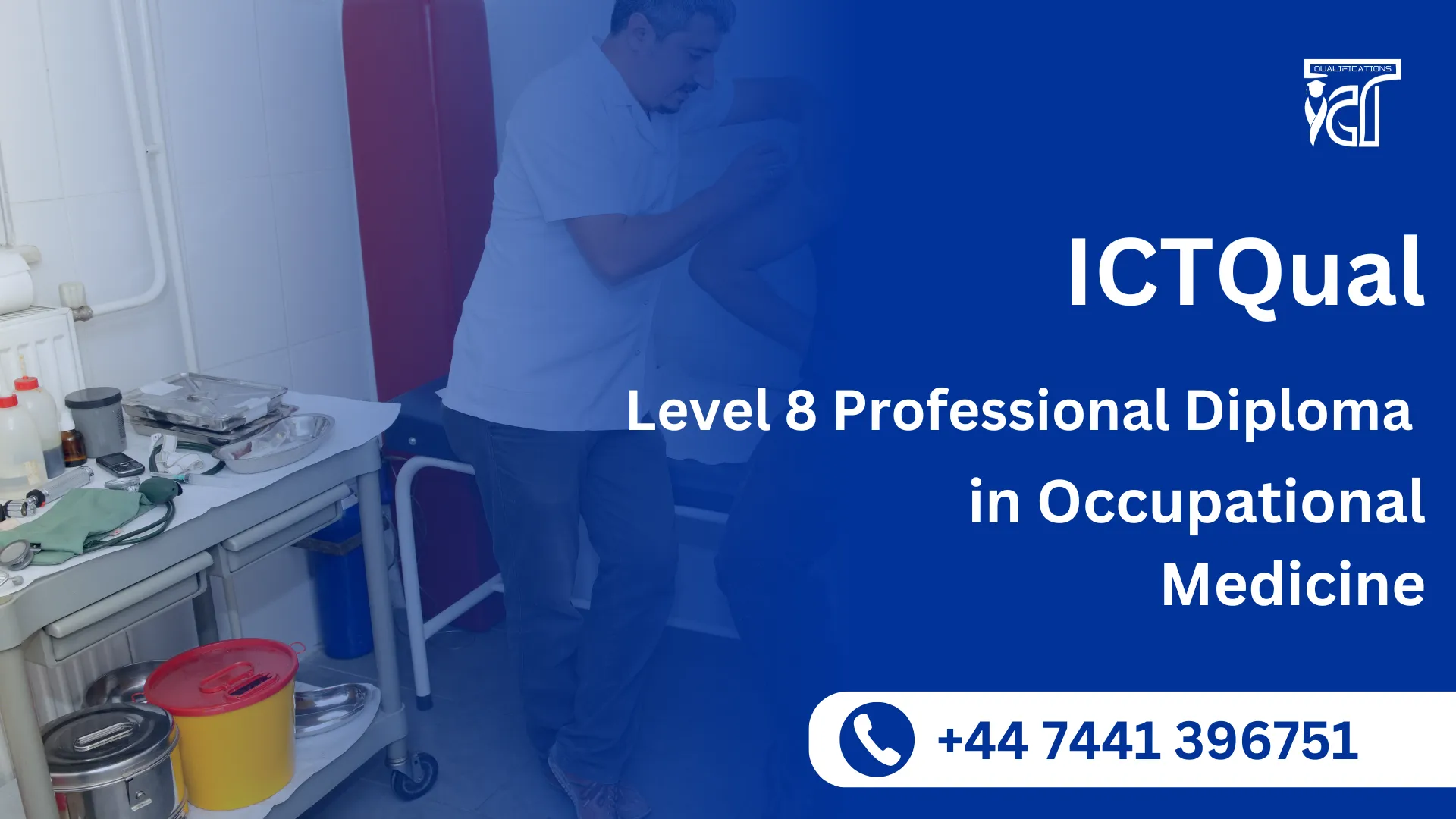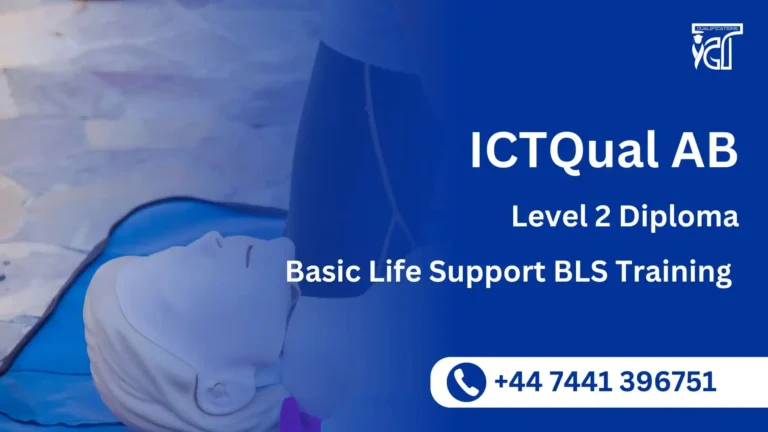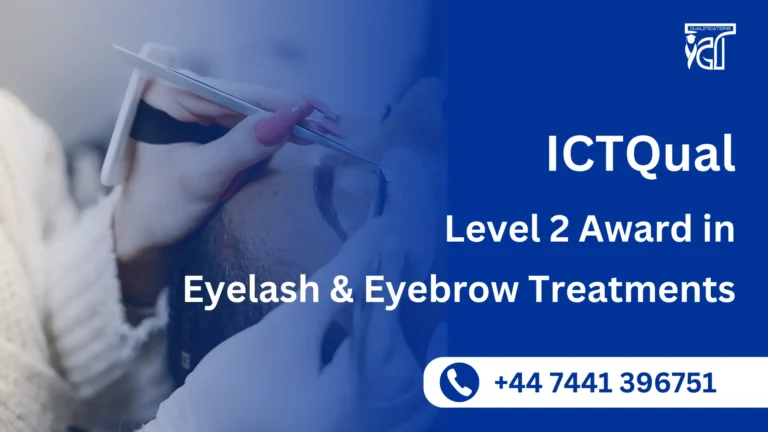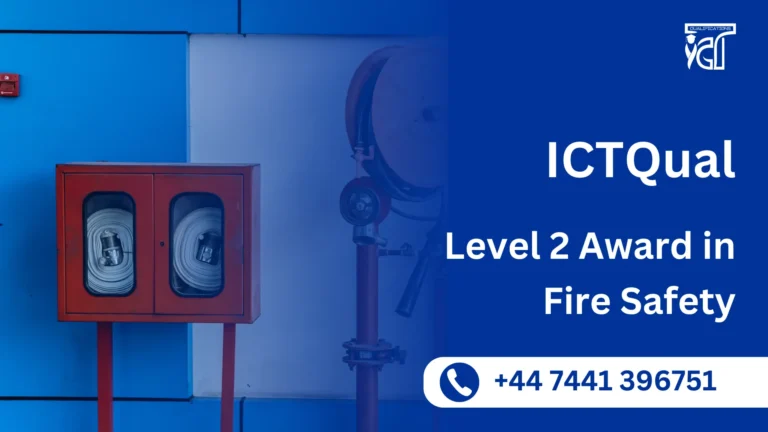The ICTQual Level 8 Professional Diploma in Occupational Medicine is a prestigious, high-level qualification designed for medical professionals who are committed to advancing their expertise in occupational health and workplace medicine. This internationally recognized diploma provides comprehensive knowledge and practical skills essential for managing and improving employee health, safety, and well-being in various industries.
As workplace health becomes a top priority across sectors, the demand for qualified occupational medicine professionals is growing. This diploma is ideal for experienced practitioners seeking advanced knowledge, strategic insight, and leadership capabilities in occupational health services.
The ICTQual Level 8 Professional Diploma in Occupational Medicine represents one of the highest academic qualifications in this field. Positioned at the doctoral level on international qualification frameworks, it combines rigorous academic research with practical, real-world applications.
The course provides in-depth training in medical risk assessment, epidemiology, workplace hazard management, occupational disease prevention, and legal frameworks related to workplace health and safety. It also focuses on the ethical, psychological, and social aspects of occupational medicine, ensuring learners are equipped to take a holistic approach to employee health.This diploma is ideal for senior professionals looking to influence policy, lead corporate health programs, or pursue research and consultancy roles in occupational medicine.
The ICTQual Level 8 Professional Diploma in Occupational Medicine is a top-tier qualification designed to shape the next generation of leaders in workplace health. With a rigorous curriculum, flexible structure, and international recognition, it empowers experienced professionals to drive strategic change in occupational medicine.Whether your goal is to lead occupational health initiatives, influence global policy, or conduct ground-breaking research, this diploma provides the advanced knowledge, credibility, and expertise to make a meaningful impact.
Start your journey today and become a leader in occupational health and medicine.
ICTQual Level 8 Professional Diploma in Occupational Medicine
The ICTQUAL Level 8 Professional Diploma in Occupational Medicine comprises four advanced study units and one research project. These units are designed to provide in-depth knowledge and expertise, aligning with the high standards of a Level 8 qualification.
Study Unit 1: Advanced Occupational Health Risk Assessment and Management
Comprehensive Risk Analysis:
- Conduct advanced risk assessments to identify and evaluate potential health hazards in various workplace environments.
- Utilize epidemiological methods to analyze workplace health risks and develop risk profiles.
Occupational Exposure and Control Strategies:
- Examine methods for assessing exposure to physical, chemical, biological, and ergonomic hazards.
- Develop and implement advanced strategies for controlling and mitigating occupational health risks.
Health Surveillance and Monitoring:
- Design and implement comprehensive health surveillance programs to monitor worker health and detect early signs of occupational illnesses.
- Utilize advanced diagnostic and screening techniques for early detection of occupational diseases.
Case Studies and Best Practices:
- Analyze case studies of occupational health risk management in different industries.
- Evaluate best practices for effective risk management and prevention of occupational diseases.
Study Unit 2: Advanced Clinical Practice in Occupational Medicine
Diagnosis and Management of Occupational Diseases:
- Advanced techniques for diagnosing occupational diseases using clinical, laboratory, and imaging tools.
- Develop evidence-based management plans for common occupational diseases.
Clinical Toxicology and Workplace Exposures:
- Explore the principles of clinical toxicology related to workplace exposures.
- Assess the health effects of toxic substances and develop management strategies for exposed workers.
Occupational Health Assessment and Fitness for Work:
- Conduct comprehensive occupational health assessments to determine fitness for work.
- Develop return-to-work and rehabilitation programs for workers with occupational injuries or illnesses.
Case Studies and Evidence-Based Practice:
- Analyze clinical case studies to apply evidence-based practices in the diagnosis and management of occupational diseases.
- Evaluate the effectiveness of different clinical interventions and treatment plans.
Study Unit 3: Occupational Health Policy and Regulatory Frameworks
Global and National Occupational Health Policies:
- Examine global and national policies and regulations governing occupational health.
- Analyze the impact of occupational health policies on workplace practices and worker health outcomes.
Legal and Ethical Issues in Occupational Medicine:
- Explore the legal and ethical issues related to occupational health practice.
- Develop strategies for addressing ethical dilemmas and ensuring compliance with legal requirements.
Occupational Health Program Development:
- Design and implement comprehensive occupational health programs tailored to organizational needs.
- Evaluate the effectiveness of occupational health programs and make recommendations for improvement.
Stakeholder Engagement and Advocacy:
- Develop strategies for engaging stakeholders in occupational health initiatives.
- Advocate for policies and practices that promote worker health and safety.
Study Unit 4: Research Methods and Evidence-Based Practice in Occupational Medicine
Advanced Research Methods:
- Explore advanced research methodologies applicable to occupational medicine, including qualitative, quantitative, and mixed-methods approaches.
- Design robust research studies to investigate occupational health issues.
Data Analysis and Interpretation:
- Utilize advanced statistical tools and techniques for analyzing occupational health data.
- Interpret research findings and draw meaningful conclusions to inform practice.
Evidence-Based Practice:
- Apply principles of evidence-based practice to occupational medicine.
- Develop guidelines and protocols based on the best available evidence to improve occupational health outcomes.
Research Ethics and Governance:
- Address ethical considerations in occupational health research.
- Navigate research governance frameworks and ensure compliance with ethical standards.
Research Project: Advanced Topics in Occupational Medicine
Research Proposal Development:
- Select a specific advanced topic within occupational medicine and develop a detailed research proposal.
- Define research objectives, questions, and methodology.
Literature Review and Conceptual Framework:
- Conduct a comprehensive literature review to identify relevant theories, concepts, and empirical studies.
- Develop a conceptual framework to guide the research.
Data Collection and Analysis:
- Collect and analyze primary or secondary data using advanced research methods.
- Employ appropriate statistical or qualitative analysis techniques to explore research questions.
Findings and Recommendations:
- Present the research findings, critically analyze the results, and draw meaningful conclusions.
- Provide evidence-based recommendations for practice, contributing to the advancement of occupational medicine.
GLH (Guided Learning Hours) and TQT (Total Qualification Time) are terms commonly used in vocational qualifications to help define the amount of time a learner is expected to spend on their studies.
1. GLH (Guided Learning Hours)
GLH refers to the number of hours a learner spends being directly taught, supervised, or supported during their course. This includes the time spent in activities such as:
- Classroom instruction
- Practical workshops
- One-on-one tutoring or mentoring sessions
- Online learning sessions with tutor support
In other words, GLH represents the time that learners are actively engaged with their instructors or learning activities.
2. TQT (Total Qualification Time)
TQT represents the total amount of time a learner is expected to invest in completing a qualification, including:
- GLH (Guided Learning Hours): Time spent on direct learning, as explained above.
- Self-Directed Learning: This includes time spent on independent study, research, assignment completion, preparation for exams, and any other work the learner does outside of direct teaching hours.
TQT is a broader measure that includes all the time required to achieve the qualification. It helps learners and employers understand the overall commitment required for the qualification.
Key Differences Between GLH and TQT:
- GLH focuses on direct learning with guidance or supervision.
- TQT includes GLH as well as independent study time and other learning-related activities.
Example:
If a qualification has a TQT of 600 hours and a GLH of 250 hours, it means the learner should spend 250 hours in direct learning (classroom, online, or tutor-led sessions) and 350 hours on independent study or research.
Here are the learning outcomes for each study unit:
Study Unit 1: Advanced Occupational Health Risk Assessment and Management
Comprehensive Risk Analysis:
- Learning Outcomes:
- Conduct advanced risk assessments to identify potential health hazards in various workplace environments.
- Utilize epidemiological methods to analyze workplace health risks and develop detailed risk profiles.
Occupational Exposure and Control Strategies:
- Learning Outcomes:
- Assess exposure to physical, chemical, biological, and ergonomic hazards using advanced techniques.
- Develop and implement effective strategies for controlling and mitigating occupational health risks.
Health Surveillance and Monitoring:
- Learning Outcomes:
- Design and implement comprehensive health surveillance programs to monitor worker health.
- Utilize advanced diagnostic and screening techniques for early detection of occupational diseases.
Case Studies and Best Practices:
- Learning Outcomes:
- Analyze case studies of occupational health risk management in various industries.
- Evaluate and apply best practices for effective risk management and prevention of occupational diseases.
Study Unit 2: Advanced Clinical Practice in Occupational Medicine
Diagnosis and Management of Occupational Diseases:
- Learning Outcomes:
- Utilize advanced techniques for diagnosing occupational diseases with clinical, laboratory, and imaging tools.
- Develop evidence-based management plans for common occupational diseases.
Clinical Toxicology and Workplace Exposures:
- Learning Outcomes:
- Explore principles of clinical toxicology related to workplace exposures.
- Assess health effects of toxic substances and develop management strategies for exposed workers.
Occupational Health Assessment and Fitness for Work:
- Learning Outcomes:
- Conduct comprehensive occupational health assessments to determine fitness for work.
- Develop and implement return-to-work and rehabilitation programs for workers with occupational injuries or illnesses.
Case Studies and Evidence-Based Practice:
- Learning Outcomes:
- Analyze clinical case studies to apply evidence-based practices in diagnosing and managing occupational diseases.
- Evaluate the effectiveness of various clinical interventions and treatment plans.
Study Unit 3: Occupational Health Policy and Regulatory Frameworks
Global and National Occupational Health Policies:
- Learning Outcomes:
- Examine global and national policies and regulations governing occupational health.
- Analyze the impact of these policies on workplace practices and worker health outcomes.
Legal and Ethical Issues in Occupational Medicine:
- Learning Outcomes:
- Explore legal and ethical issues related to occupational health practice.
- Develop strategies to address ethical dilemmas and ensure compliance with legal requirements.
Occupational Health Program Development:
- Learning Outcomes:
- Design and implement comprehensive occupational health programs tailored to organizational needs.
- Evaluate the effectiveness of these programs and make recommendations for improvement.
Stakeholder Engagement and Advocacy:
- Learning Outcomes:
- Develop strategies for engaging stakeholders in occupational health initiatives.
- Advocate for policies and practices that promote worker health and safety.
Study Unit 4: Research Methods and Evidence-Based Practice in Occupational Medicine
Advanced Research Methods:
- Learning Outcomes:
- Explore advanced research methodologies applicable to occupational medicine, including qualitative, quantitative, and mixed-methods approaches.
- Design robust research studies to investigate occupational health issues.
Data Analysis and Interpretation:
- Learning Outcomes:
- Utilize advanced statistical tools and techniques for analyzing occupational health data.
- Interpret research findings to draw meaningful conclusions and inform practice.
Evidence-Based Practice:
- Learning Outcomes:
- Apply principles of evidence-based practice to occupational medicine.
- Develop guidelines and protocols based on the best available evidence to improve occupational health outcomes.
Research Ethics and Governance:
- Learning Outcomes:
- Address ethical considerations in occupational health research.
- Navigate research governance frameworks and ensure compliance with ethical standards.
Research Project: Advanced Topics in Occupational Medicine
Research Proposal Development:
- Learning Outcomes:
- Select a specific advanced topic within occupational medicine and develop a detailed research proposal.
- Define research objectives, questions, and methodology.
Literature Review and Conceptual Framework:
- Learning Outcomes:
- Conduct a comprehensive literature review to identify relevant theories, concepts, and empirical studies.
- Develop a conceptual framework to guide the research.
Data Collection and Analysis:
- Learning Outcomes:
- Collect and analyze primary or secondary data using advanced research methods.
- Employ appropriate statistical or qualitative analysis techniques to explore research questions.
Findings and Recommendations:
- Learning Outcomes:
- Present the research findings, critically analyze the results, and draw meaningful conclusions.
- Provide evidence-based recommendations for practice, contributing to the advancement of occupational medicine.
Key Benefits of ICTQual Level 8 Professional Diploma in Occupational Medicine
1. Internationally Recognized and Respected Qualification
This diploma holds global recognition, making it a valuable credential for professionals working across different countries and industries. It enhances your credibility in both clinical and corporate settings.
2. Doctorate-Level Academic Standard
Positioned at Level 8 on international qualification frameworks, this program is equivalent to a doctoral-level qualification, reflecting a high level of expertise and academic achievement in occupational medicine.
3. Career Advancement Opportunities
Graduates are well-positioned for senior roles such as Occupational Health Director, Corporate Health Consultant, Policy Advisor, or Academic Researcher. The qualification supports progression into leadership and strategic positions in both public and private sectors.
4. Assignment-Based, Flexible Learning
Designed for working professionals, the course is assessed entirely through research-based assignments and practical projects—no traditional exams—making it ideal for those balancing education with clinical or managerial duties.
5. In-Depth Knowledge and Practical Skills
Learners gain advanced understanding in areas such as workplace hazard control, occupational disease prevention, legal compliance, and mental health at work, which can be applied directly in the field.
6. Improved Research and Analytical Capabilities
The program emphasizes evidence-based practice and academic research, equipping learners with the skills needed to conduct occupational health studies and contribute to the scientific and policy development communities.
7. Enhanced Leadership and Strategic Thinking
Participants will develop executive-level decision-making and leadership capabilities, enabling them to manage large-scale occupational health programs and advise on national and international policies.
8. Wide Industry Relevance
Applicable across all sectors—manufacturing, construction, healthcare, oil & gas, education, transportation, and more—this diploma supports professionals working in diverse environments.
9. Support for Academic and Professional Recognition
The qualification supports further progression into PhD-level research, university teaching, or specialized medical training, and may aid in gaining professional memberships or fellowships in medical and health-related institutions.
10. Contribution to Workplace Health and Public Safety
Graduates are empowered to play a critical role in promoting healthier workplaces, reducing occupational illness, and contributing to safer working environments globally.
Who Is the ICTQual Level 8 Professional Diploma in Occupational Medicine Best For?
The ICTQual Level 8 Professional Diploma in Occupational Medicine is designed for experienced professionals who are passionate about advancing health and safety standards in the workplace. This qualification is particularly well-suited for:
1. Occupational Health Physicians and Medical Specialists
Doctors and healthcare professionals already working in occupational health who want to deepen their expertise, gain a formal high-level qualification, and advance into leadership or consultancy roles.
2. Public Health Professionals
Individuals involved in public health programs who wish to specialize in workplace health, industrial hygiene, and the prevention of occupational diseases.
3. Health and Safety Managers
Senior safety and health managers or directors responsible for creating and overseeing occupational health policies, procedures, and compliance at an organizational or governmental level.
4. Medical Consultants and Independent Practitioners
Consultants offering occupational health services who want to add academic credibility and expand their service offerings to large corporations or public sector bodies.
5. Corporate Wellness Program Leaders
HR or L&D professionals managing employee health and wellness initiatives who aim to integrate medical insights and scientific principles into workplace programs.
6. Researchers and Academics in Health Sciences
Academics or postgraduate researchers seeking advanced qualifications to support PhD progression or publish scholarly work in the field of occupational medicine.
7. Policy Makers and Health Advisors
Professionals working with government bodies, NGOs, or international health organizations who are involved in shaping workplace health policies or labor safety legislation.
Entry Requirements
Register Now
Qualification Process
Qualification Process for the ICTQual Level 8 Professional Diploma in Occupational Medicine
- Self-Assessment:
Begin by evaluating your eligibility to ensure you meet the qualification requirements, including work experience, knowledge, and language proficiency. - Registration:
Complete your registration by submitting the required documents, including a scanned copy of a valid ID, and paying the registration fee. - Induction:
An assessor will conduct an induction to confirm your eligibility for the course and explain the evidence requirements. If you do not meet the criteria, your registration will be canceled, and the fee will be refunded. - Assignmnets & Evidence Submission:
Provide all assignmnets and the necessary evidence based on the assessment criteria outlined in the course. If you are unsure of the required evidence, consult with the assessor for guidance on the type and nature of evidence needed. - Feedback and Revision:
The assessor will review your submitted evidence and provide feedback. Evidence that meets the criteria will be marked as “Criteria Met,” while any gaps will be identified. You will be asked to revise and resubmit if needed. - Competence Evidence:
Submit final evidence demonstrating that all learning outcomes have been met. This evidence will be marked as “Criteria Met” by the assessor once it is satisfactory. - Internal Quality Assurance (IQA):
The Internal Quality Assurance Verifier (IQA) will review your evidence to ensure consistency, quality, and compliance with standards. - External Verification:
The IQA will submit your portfolio to ICTQUAL AB External Quality Assurance Verifiers (EQA) for final confirmation. The EQA may contact you directly to verify the authenticity of your evidence. - Certification:
Upon successful completion of all checks, ICTQUAL AB will issue your official certificate, confirming that you have attained the ICTQual Level 8 Professional Diploma in Occupational Medicine.







